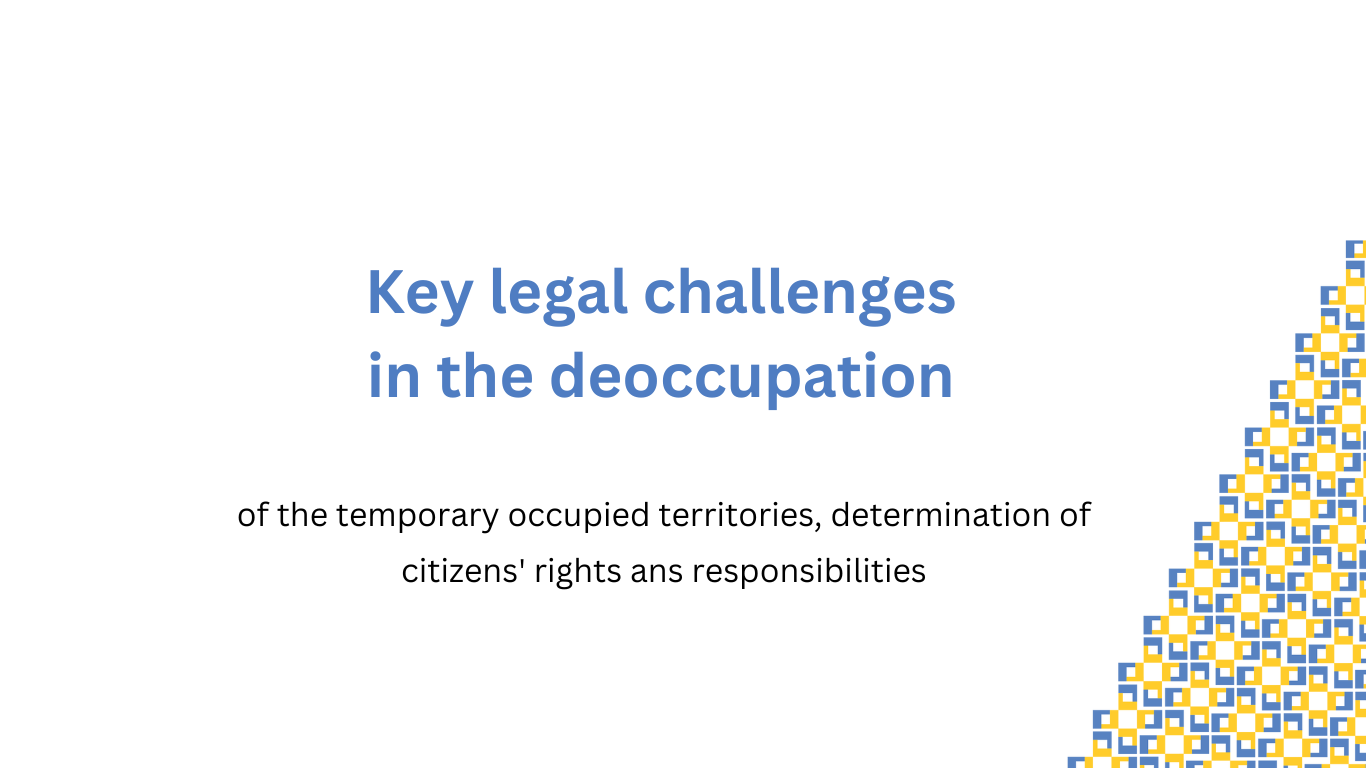Key legal challenges in the deoccupation of the temporary occupied territories, determination of citizens’ rights and responsibilities

Policy. Analytical Review and Recommendations.
This report was prepared by the Ukrainian Helsinki Human Rights Union within the framework of activities of the National Platform for Resilience and Social Cohesion. The initiative is being implemented with the financial support of the European Union within the project “Building Resilience in Conflict Through Dialogue”. The content of this publication is the sole responsibility of its authors and does not necessarily reflect the official views of the European Union.
І. Problem Statement
The liberation of part of the territories by the Armed Forces of Ukraine in 2022 made the problem of the lack of coordinated state deoccupation policy more relevant, in particular, this concerns the legal position of the state regarding citizens who could have worked or cooperated with the occupation authorities in the territories temporarily occupied by Russia (TOT). There are legal and political dimensions to this issue. The public discourse of political figures deserves a separate assessment. The amendments to the Criminal Code note certain characteristics regarding the definition of wartime collaboration activity, however some politicians can publicly refer to almost all citizens who have not left the TOT and have not become obvious victims of persecution by the occupants as «collaborators». The statements of officials and the content of a number of draft laws, which will be analyzed in this paper, may give a corresponding impression.
Related to the above-mentioned issue is also the problem of inconsistent policy with regard to the TOT citizens who allegedly «received» Russian citizenship during the occupation. After all, the state has a clear legal position regarding the non-recognition of documents (in particular, passports) issued by the occupation authorities.
The restoration of Ukrainian authority in the deoccupied territories is a complex and lengthy process. Neutralization of the consequences of collaborationism is a component of the security issue, which is of high priority, along with humanitarian issues, restoration of civil infrastructure, organization of social life, etc. At the same time, work with the population of the deoccupied territories will directly affect the processes of post-conflict recovery.
This paper analyses the problems through the lens of policy impact on human rights and post-conflict settlement (including societal resilience and social cohesion).
You can get acquainted with the text by following the link.
